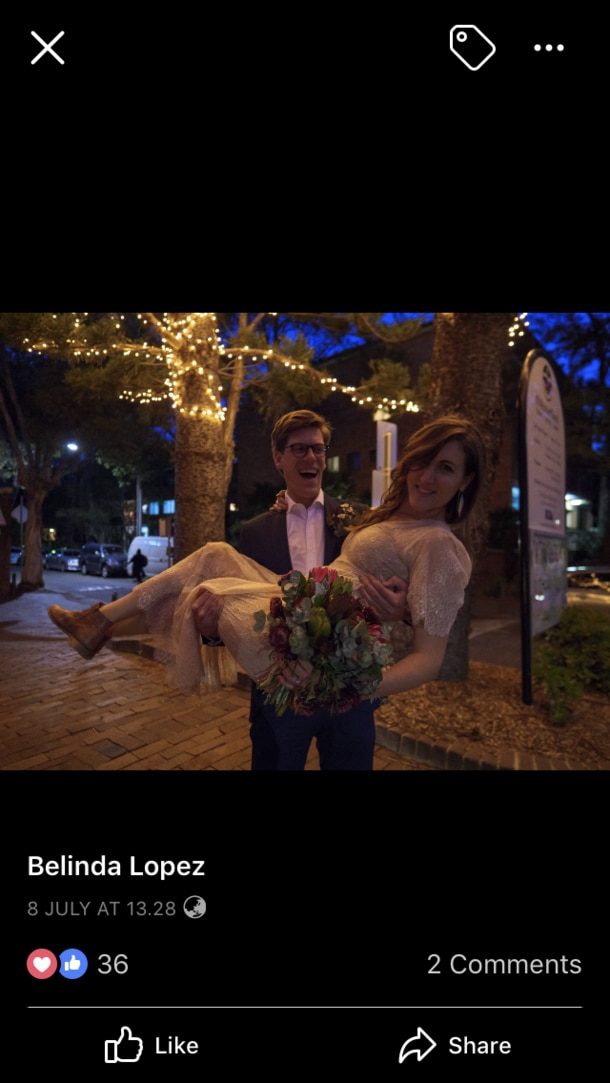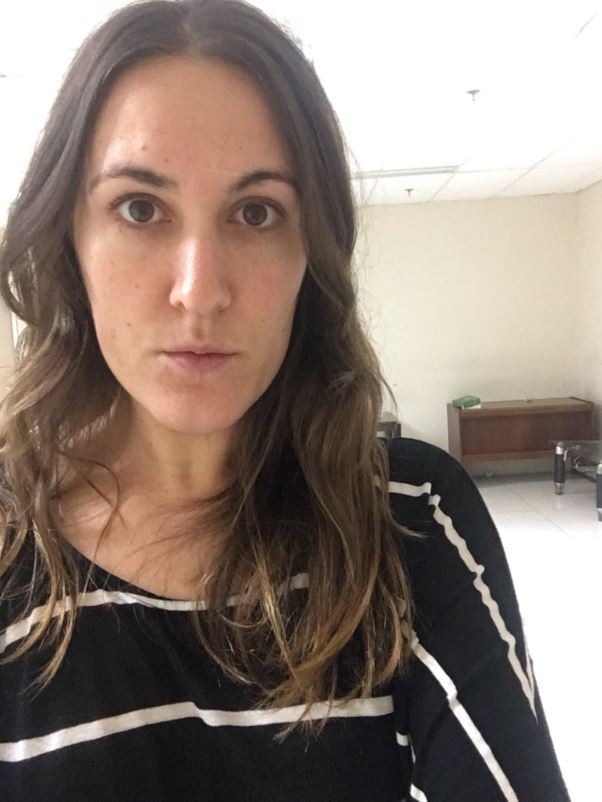Sydney woman Belinda Lopez detained on ‘horrible’ Bali honeymoon
Sydney woman deported from Bali honeymoon from hell, in an embarrassing incident on the eve of Australian diplomatic visit.

A Sydney PhD student on her honeymoon has been detained at Bali’s international airport, told she was on Indonesia’s immigration blacklist and turned back to Australia in an embarrassing incident on the eve of visits to the country by Foreign Minister Julie Bishop and Home Affairs Minister Peter Dutton.
Belinda Lopez, 33, was due to be put on a 10pm flight back to Sydney — almost 24 hours after she flew into Denpasar on Saturday night and cleared immigration, only to be called back seconds later and told she was not allowed to enter the country. She spent the night on a couch in a frigid airport immigration office with no access to her luggage, and no food or drink provided by authorities.
The Macquarie University student, who lived in Indonesia nine years ago and worked for 18 months as a journalist at the English language Jakarta Post and Jakarta Globe newspapers, told The Australian she had been given no explanation for why she had been detained other than she was on an official blacklist.

“When I asked why I was black-listed the man actually said; ‘You should be telling us why you’re black-listed’, or something to that effect,” Ms Lopez said in a Whatsapp exchange this afternoon as she sat in Ngurah Rai International Airport.
In a widely-read Twitter thread today, Ms Lopez said she had been deported from Papua in 2016 while on a study visa there after immigration officials accused her of working surreptitiously as a journalist, which she strenuously denies.
“The experience two years ago was upsetting and came with such a lack of explanation. But the staff assured me it was a six month ban so I didn’t think entering Bali would be problem,” she told The Australian.
Immigration office spokesman Agung Sampurno denied Ms Lopez was being deported on suspicions she was heading to Papua as a journalist.
“Belinda was barred from entering Indonesia on an immigration issue,” he told Reuters, confirming she was on a blacklist.
Ms Lopez said she had sought help today from the Australian consulate in Bali, which Ms Bishop will be visiting ahead of the Bali Process regional biennial meeting on People Smuggling, Trafficking in Persons and Related Transnational this Tuesday, but was told they do not intervene in immigration matters.
“I asked if there was any other support that could be provided and they said ‘unfortunately not’,” she said.
“It’s been the most horrible two days.”
This is not a joke: I’m blacklisted by the Indonesian government.
— Belinda Lopez (@belle_lopez) August 3, 2018
Saya termasuk dalam daftar tangkal Indonesia (terjemahan dibawah). pic.twitter.com/diMWQhPC6h
Mr Dutton is also in the country this weekend for a counter-terrorism and security conference.
The weekend ordeal has capped off a honeymoon from hell for Ms Lopez and her new husband, who was unable to fly to Bali after he was told his passport was a few days short of the required six months expiry date.
He had planned to meet her in Bali after renewing his passport so the couple, who were married in early July, could fly to West Papua to attend the annual Baliem Cultural Festival, held from August 7 to 9.
The annual gathering of tribes from the area features mock tribal warfare involving up to 1000 local warriors and dancers and is a rare tourist event in Indonesia’s impoverished and easternmost province of West Papua.
A spokesperson from the Department of Foreign Affairs and Trade said: “The Department of Foreign Affairs and Trade is providing assistance in accordance with the Consular Services Charter to an Australian woman detained in Bali.”

President Joko Widodo has long tried to encourage tourists away from the now-overcrowded resort island of Bali and to experience the rich and diverse cultures of Indonesia’s archipelago.
Ms Lopez’s detention comes just six months after Australian journalist, Rebecca Henschke was detained and then forced to leave Papua while reporting for the BBC on a health and malnutrition crisis, despite having received official police permission to travel there.
Papua is one of Indonesia’s poorest provinces and one of the most sensitive areas for Indonesian security forces because of a long-running secessionist movement there.
When President Jokowi was elected in 2014 he had pledged to speed up development and ease restrictions on media access into the province.
But while some progress has been made on development, activists say foreign journalists continue to face obstacles when trying to report.




To join the conversation, please log in. Don't have an account? Register
Join the conversation, you are commenting as Logout